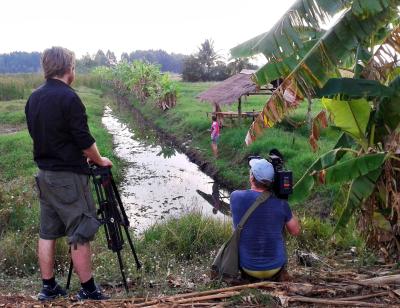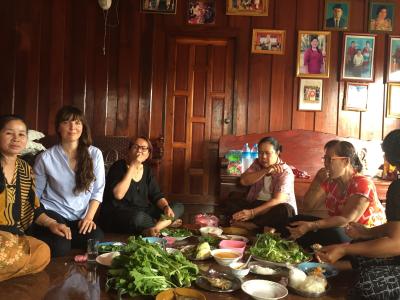Research on film: reaching broader audiences
In academia there’s a saying: publish or perish. Yet, while academic articles and books are manifold and researchers are in a rush to write them, statistics show that they are read by fewer and fewer people. At the same time, policymakers and funders want us to disseminate our research in shorter and more comprehensible ways.
Rather than continuing to argue against this development, I think we need to accept it, while we insist that there are multiple ways in which we as researchers can bring our research to use while not jeopardizing the quality of the research.
Confidence in public debate, on the other hand, is lacking - and respondents call for research-based knowledge to play a more significant role in the Danish news coverage.
Read the full survey (Danish)
Filmmaking is one of them. I have been a film director for almost as long as I have been an anthropologist researching globalization and migration. Throughout those years, I have been involved in six documentaries for international release and for multiple TV stations on different aspects of migration. My latest documentary Heartbound, which is co-directed by Janus Metz (Armadillo 2010), is shot over ten years and chronicles the lives of a group of Thai migrant women and their families, documenting the consequences, intended and unintended, of migration over time.
Research based documentaries, like the ones I have been involved in, usually reach much wider audiences than academic papers. Furthermore, I see an increasing interest in bringing research and contemporary questions of international politics to the big screen. But often, I experience how researchers find that documentaries simplify a complex context in sensationalized or uncritical ways.
That’s why we need more researchers to make films or to collaborate with filmmakers. I see multiple benefits from combining longitudinal research with filmmaking: Films give us the opportunity to bring matters of international politics to policymakers, funders and into people’s everyday conversations through well-selected main characters. Research-based films with strong narratives can be used in classrooms, conferences, in TV and be shown in movie theatres and at film festivals all over the world, also in the countries in the Global South for those of us who conduct our research there.

This is not to say that all research should be communicated in films, but in my view, it’s time we move away from thinking about visual material, podcasts and multiple other new ways of communicating research as just a “fun” or “alternative” appendix to your profile as a researcher. Rather, I argue that as researchers, we have unique insights and opportunities to contribute to a more nuanced democratic coverage and conversation on international politics if the films and audio-visual material are used to tell complex stories rather than just simplified and sensational ones.
Where is the fact box? Where is the voice over?
Documenting migrants, as I have, and research subjects more general on film raises concern about anonymity and agency. As researchers, we have a crucial responsibility towards our interlocutors, and this responsibility is arguably even greater when filming them. Furthermore, films cannot depict all facets of the research behind a story nor the entire complexity of a topic—at times it is necessary to simplify the story to be able to tell a story at all.
However, films are not merely products of particularly unnuanced, under-researched or political positions on a given topic. Rather, while the film industry certainly produces sensationalised films on multiple topics, there is a range of other aspects influencing the filmmaking process.
As with research, filmmakers are limited by time, resources (financial and human), access, ethical responsibilities and programme formats, to name just a few. Moreover, filmmakers want to produce a final product that people actually want to watch, which makes it necessary to present a coherent, comprehensible document—a good story.
While research often offers a contextualized analysis based on observations, interviews and analysis, films usually leave less room for explicit historical and cultural contexts in their effort to communicate. One question I often get from fellow academics is why I do not incorporate a fact box or a voice-over to provide some context. The answer is that in order to create a more sensory-based filmic language, I refrain from making my research explicit in the films—for instance in the form of a (patronizing) voice-over or fact box. Instead, I think films should open up and question existing representations of a topic, and perhaps even propel new readings and produce counter-narratives.
No documentary film is free of blind spots, nor can it fully represent a group, a theme or an entire research project. Sometimes it is only possible to present a few findings or change people’s perception of a given topic a little bit. Over time, however, if multiple well-narrated films with complex messages reach broader audiences, I believe that research-based documentaries can change the conversation.

DIIS Experts

